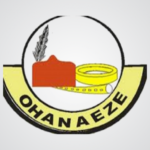An international conference on the planning and development of new capital cities in developing countries was held in Abuja in March, 1984, under the auspices of the United Nations University, Tokyo-Japan. The leading paper was: “Implementing a Master Plan: The Abuja Experience”. It was delivered by Alhaji Usman Sabo Ago, the Director of Land Planning and Survey of the Federal Capital Development Authority (FCDA). His career with the FCDA might have started in 1981, but his interest in the development of the capital city started in 1971.
Alhaji Sabo was born in 1944 in Ago village in Nasarawa LGA of Nasarawa State. His father was Sarkin Ago, Kahuda Agabi. When he completed his primary education in Central Primary School, Nasarawa in 1955, his father entrusted him to the care of the Emir of Abuja, now Suleja, Alhaji Sulaimanu Barau, to further his education at the Abuja Middle School, from 1956 to 1958. At completion, the emir ensured his enrolment into the Government Secondary School (GSS), Abuja, from 1959 to 1963. Afterwards he went to Government College, Keffi, from 1964 to 1965. From 1966 to 1970 he obtained a BA in geography from the Ahmadu Bello University (ABU), Zaria.
He returned to Abuja as the Principal of GSS, Abuja, now Suleja, from July, 1970, to June, 1972. As principal he was a participant at the African Educators Project between July and September, 1971, sponsored by the US Department of State under the auspices of the African American Institute (AAI). The project involved a tour of educational institutions and attending seminars and workshops on educational systems and administration in the US.
While on the US tour, he was informed by one of his instructors, a professor of physical planning, that the US government had an intelligent report that due to the bitter experience of the civil war the then military government in Nigeria was strongly nursing the idea of transferring the capital city from Lagos which was considered highly vulnerable to external aggression by virtue of its location at a corner of the country and with a seaport. The most likely location would be the centre of the country, which the Abuja region was the most suitable. The professor advised him to further his education in the field of physical planning in order to be relevant in the eventual new capital city project.
- Supreme Court affirms Eno as Akwa Ibom gov
- Buni takes marketing of agricultural products to Qatar embassy
It was more than a coincidence because barely after his return, he was informed by his guardian, the Emir of Abuja Sulaimanu Barau, who was a member of the governing council of ABU, that the institution would commence MSc in urban and regional planning in1972. Aware of the future prospect of the course, most especially as it concerned his emirate, the emir encouraged him and ensured his enrolment among the pioneer students in 1972, and he obtained the MSc in 1974.
After his youth service as a physical town planning officer in Lagos State, he held many positions in the former Benue-Plateau State between 1975 and 1976. On the establishment of Plateau State, between 1976 and 1980, the responsibilities he was saddled with were the establishment of the Plateau Rural Electricity Board, Director of Resettlement, General Manager, Plateau State Environmental Planning and Development Board (EPDB) now Jos Metropolitan Development Board (JMDB); Secretary for Education, and Permanent Secretary (Administration).
The project of implementing the design of the nation’s capital city was highly technical, sensitive and enormous, which must be entrusted in the best capable hands. Alhaji Sabo was employed in the service of the FCDA in May, 1981, as Assistant Director, Planning and Architecture. In April, 1982, he became the first Director of Land, Planning and Survey. This was the period that the Master Plan was removed from the drawing table and the actual physical translation to the ground commenced.
In his capacity at that time, the responsibility of guiding the implementation of the master plan report as produced by IPA was squarely on his shoulders. The accuracy of the manifestation of the first phase of the city’s development is the testimony of the capability of the implementation under the professional leadership of Alhaji Sabo.
Although he held many other responsibilities after leaving the FCDA, including the national presidency of the Nigerian Institute of Town Planners (NITP), his achievements in the implementation of the Abuja Master Plan are incomparable to any.
Alhaji Sabo died on March 25, 2022. May his gentle soul rest in Jannatil Firdaus.
 Join Daily Trust WhatsApp Community For Quick Access To News and Happenings Around You.
Join Daily Trust WhatsApp Community For Quick Access To News and Happenings Around You.

